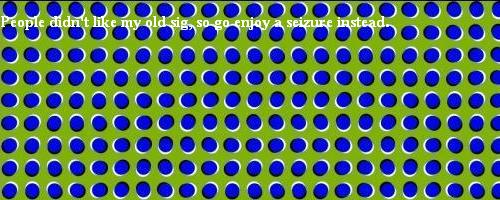sorry it took me so long to reply again.
here's are pieces from my paper:
WHAT IS EUTHANASIA?
Euthanasia translates from Greek to mean �a good death� and is basically an option of assisting a patient who is suffering unbearable pain due to an incurable disease or accident to put an end to their suffering by ending their life. There are two different types of euthanasia; passive euthanasia is withholding treatments that are sustaining the patient�s life and letting the patient�s illness or injury ultimately take their life. The second type is of euthanasia is active euthanasia, which is caused by lethal injection when it is in the patient�s best interest to end their life painlessly and quicker than letting their body suffer by natural death. Euthanasia can be voluntary, non-voluntary or involuntary. Voluntary euthanasia is called so when there is legal consent by the patient to perform euthanasia. This consent also applies if while still competent the patient expresses that if a described situation ever was occur and at that moment they were no longer competent then a chosen person may carry out voluntary euthanasia upon the patient�s prior request. Non-voluntary occurs when the person whose life ended didn�t have a choice to decide or express whether they wanted it or not because immediate incompetence occurred by birth, by sudden illness or accident. In-voluntary euthanasia occurs when a patient was competent enough prior to being able to give or withhold consent but did not do so for whatever reason. This would include if life-sustaining treatment is withheld without patients prior consent, even if it�s in the patient�s best interest.
IS IT PRACTICED?
Non-voluntary passive euthanasia is practiced with many infants born with complications and the parents deny any life-saving operations or withhold life-sustaining treatments and let the infant die. It is unfair to let an infant die slowly and painfully simply because the child cannot speak for themselves. The same goes for patient�s who no longer have the decision-making capabilities to ask for their suffering to end. It does not make moral sense to force these patients to continue to suffer.
IS IT IMMORAL?
There is also a great debate between the moralities of active euthanasia versus passive euthanasia. The difference is that passive euthanasia is letting the patient die naturally yet painfully versus assisting them to die quicker and without pain. Simply because many see active euthanasia is as if one is �pulling the trigger� they feel that it is immoral. However, if one sees someone they care for suffering in pain and you have the cure, it is just as immoral to not help them relive their pain quicker, but is killing really worse than letting someone die? No, passive euthanasia is not less worse than active euthanasia, because in passive euthanasia the one is letting the patient suffer longer and therefore is immoral. Many people will argue that in the case of the patient expressing that they want to end their life, we should let them die naturally and we should not kill them by giving them a direct injection. The claim takes the view that euthanasia is immoral because one is bringing about the death of the patient. The bare realization is that either way if it�s voluntary the patient is requesting their death anyway, and there is no need to make the patient needlessly suffer by leaving them in pain until their body decides to shut down when there is a quicker and painless option.
thats long enough... lol sorry to put all that out there, but that is just a small piece of what I think.
AKA SKRILLA 818
for it... as long as its what you want... after that its up to your next of kin/first in will... Unfortunately that would be up to my ex whom i STILL love the most... I have no will but it would be up to her... i state that here and now...









